April 17, 2025 | 14:39 GMT +7
April 17, 2025 | 14:39 GMT +7
Hotline: 0913.378.918
April 17, 2025 | 14:39 GMT +7
Hotline: 0913.378.918

The ozone layer acts as Earth's natural shield against ultraviolet radiation, helping to protect life on the planet. Photo: Thehansindia.
Deputy Prime Minister Tran Hong Ha recently signed Decision No. 496/QĐ-TTg on June 11, 2024, to establish the National Plan for the regulation and eradication of ozone-depleting substances and controlled greenhouse gases.
The primary objective of the Plan is to efficiently regulate and eradicate ozone-depleting chemicals and controlled greenhouse gases in alignment with the implementation timetable of the Montreal Protocol. This will be accomplished by implementing improved management practices, phasing out banned drugs, transitioning to advanced technologies, and adopting substances with minimal or no global warming potential (GWP). Our objective is to create sustainable cooling solutions with the goal of reducing emissions by 11.2 million tons of CO2 equivalent by 2045 through the elimination of restricted compounds.
CO2 equivalent (CO2e) is a measure of the amount of greenhouse gases expressed in metric tons of CO2, based on their global warming potential.
The Plan delineates certain objectives that must be achieved by the year 2045. Regarding the management and eradication of banned substances: Pledge to abstain from manufacturing, importing, temporarily importing, re-exporting, or using chemicals, products, and equipment that contain or are derived from Bromochloromethane, CTC, CFC, Halon, HBFC, Methyl chloroform, HCFC 141b, and HCFC-141b premixed in polyol. Prohibit the import and export of all other hydrochlorofluorocarbons (HCFCs) starting in 2040. Utilize Methyl bromide only for the purposes of fumigation and quarantine. Gradually decrease the intake of HFCs, ensuring that it remains at 20% of the initial consumption level starting from 2045.
Product and equipment management based on Global Warming Potential (GWP) employing HCFC and HFC. Minimize the Global Warming Potential (GWP) of products and equipment that are manufactured and brought into the country, following the timeline outlined in Section III of this Decision. By 2030, enhance the mean energy efficiency of manufacturing and imported machinery that employs regulated substances by 50% compared to the year 2022.
Controlled chemicals' lifecycle management: Technicians responsible for installing, operating, maintaining, and repairing items and equipment that contain prohibited substances must possess suitable qualifications and certificates. Controlled substances must be handled, stored, transported, reused, and recycled in accordance with technical specifications. If recycled materials fail to fulfill technical specifications, they must undergo treatment for the purpose of destruction in accordance with legislation. Advocate for and enhance the implementation of carbon credit methods derived from the recycling and treatment of regulated chemicals.
Efficient Cooling: Incorporate the necessary criteria for mitigating urban heat islands and enhancing resistance to extreme heat into national and provincial urban development programs, climate change action plans, provincial planning, and other relevant sector strategies. Integrate sustainable cooling initiatives in large urban regions and cities classified as Grade I and II. Ensure that new structures adhere to green building standards and demonstrate energy efficiency throughout the entire process, from design to operation. It is imperative that new buildings comply with the Net Zero Energy Building (NZEB) criteria. Enhance the mean amount of green area allocated to each urban dweller. Facilitate the growth and proliferation of sustainable cooling models and enterprises in urban regions, residential areas, office buildings, commercial structures, and public infrastructure projects.
The Plan delineates six pivotal tasks and solutions to accomplish these objectives, including the development and finalization of legal and policy frameworks. Enhance and refine the caliber of human resources. Engage in scientific investigation and advance technological progress. Share information and increase consciousness. Participate in both two-sided and multiple-sided collaboration, by gathering and utilizing resources. Assess and analyze the advancement.
Vietnam ratified the Montreal Protocol on Substances that Deplete the Ozone Layer in 1994.
In 2001, Vietnam had completely eliminated the use of Chlorofluorocarbons (CFCs), Halon, and Carbon tetrachloride (CCL4).
In 2012, the country launched a plan to support foam manufacturing enterprises to phase down pure HCFC-14b substance, aiming to reduce 10 percent of the total consumption of the substance in the country.
In 2018, it launched another plan to support enterprises with technology transformation to phase down ozone-depleting substances, aiming to reduce 35 percent of the consumption of these substances.
In 2019, Vietnam ratified the Kigali Amendment. The Kigali Amendment to the Montreal Protocol is an international agreement to gradually reduce the consumption and production of HFCs.
Translated by Linh Linh
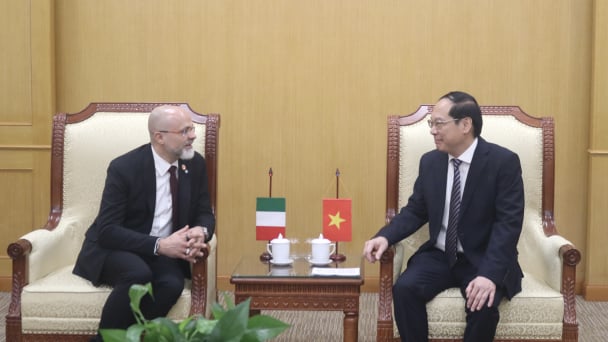
(VAN) During the working session with Deputy Minister Le Cong Thanh, Professor Francesco Corvaro, Italian Climate Change Envoy, reaffirmed Italy's commitment to supporting Vietnam in climate change response.
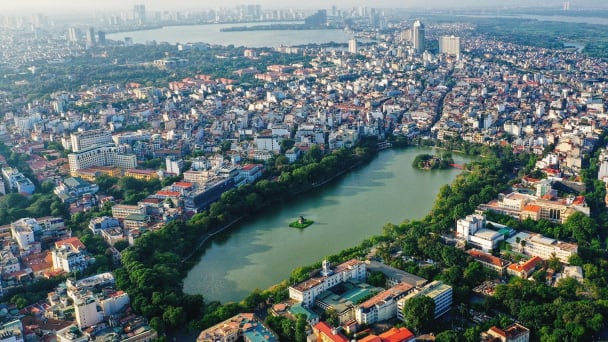
(VAN) After the merger, key leadership personnel of the provinces must consult with the General Secretary, key leaders, and the Standing Secretariat.
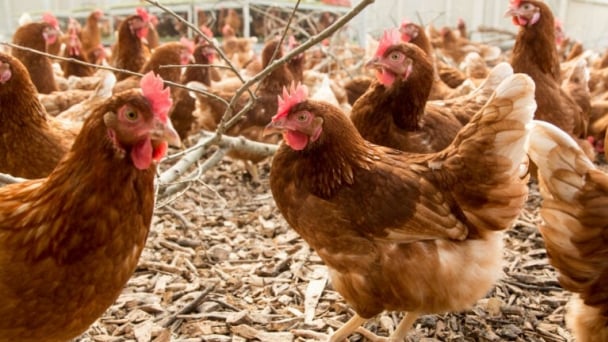
(VAN) The latest Business Benchmark on Farm Animal Welfare (BBFAW) reveals steady progress on farm animal welfare across the global food industry.

(VAN) Green credit is a financial policy that effectively supports environmentally friendly projects and activities today.
/2025/04/09/1049-2-165919_630.jpg)
(VAN) With a revenue of less than VND 30 billion/year, packaging producers are exempted from EPR liability under Decree No. 05/2025 newly issued.
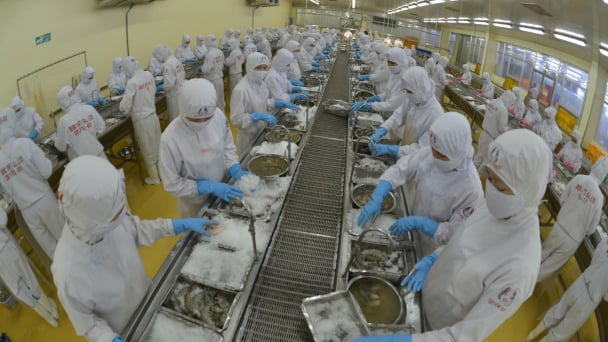
(VAN) Ministry of Agriculture and Environment has issued an Action Plan for sector's development in the coming period, aiming for a growth rate of 4% or higher and an export turnover of USD 65 billion.
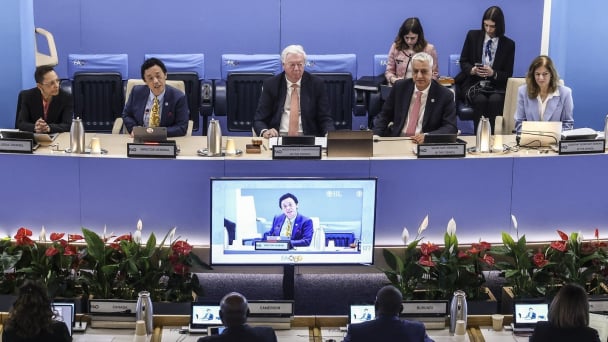
(VAN) The 177th Session of the FAO Council opened on Monday at the Organization’s headquarters in Rome.